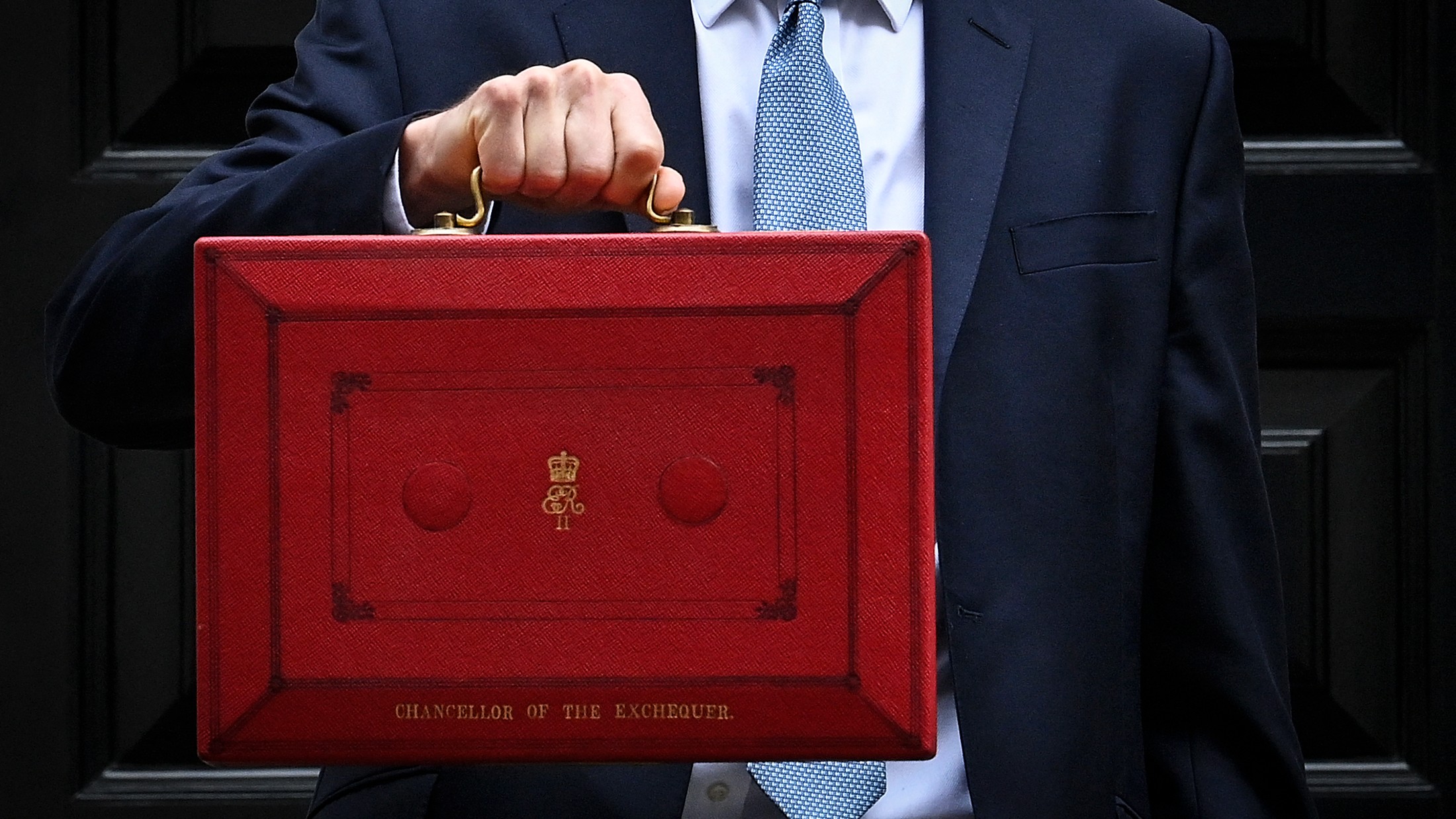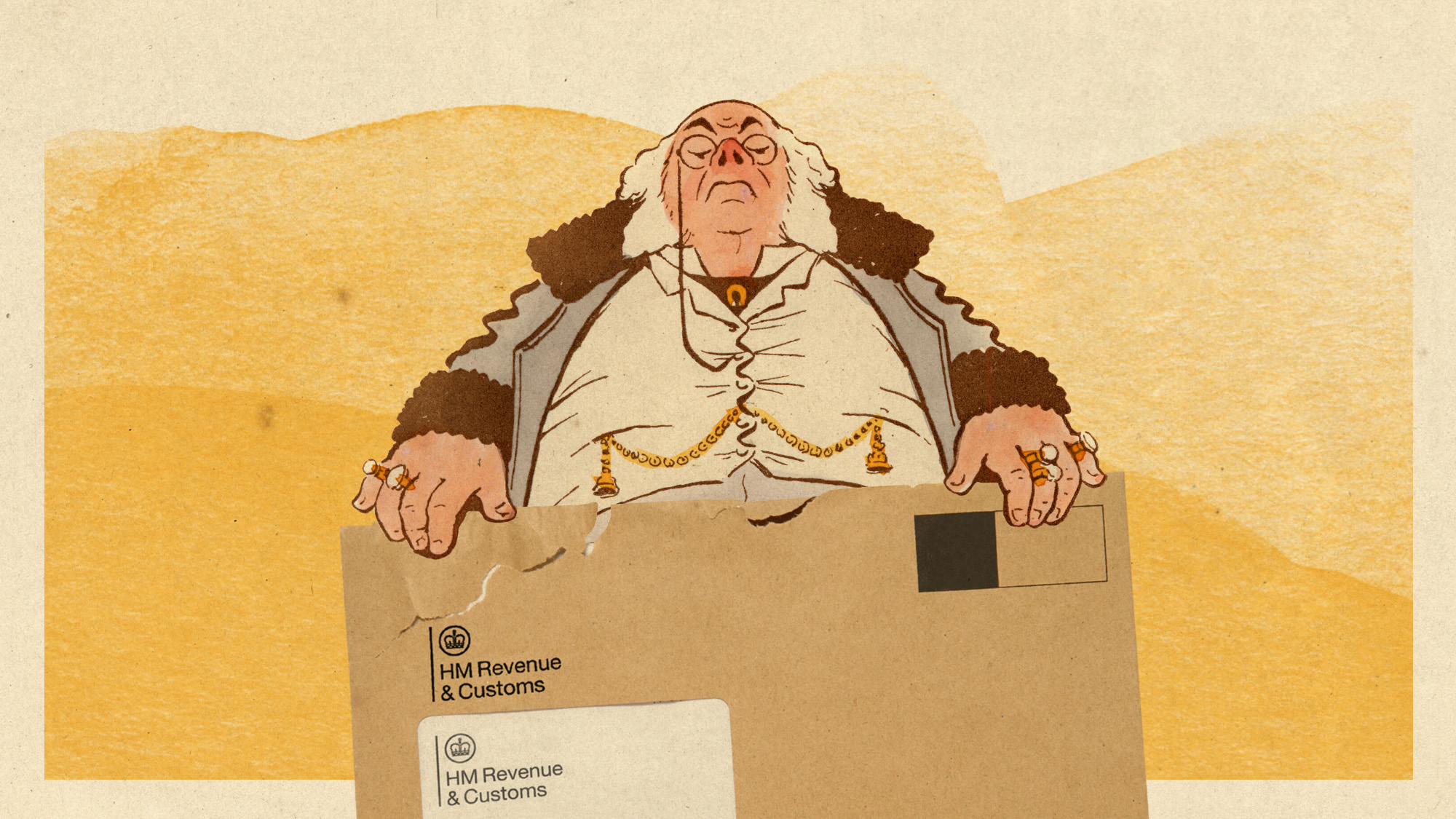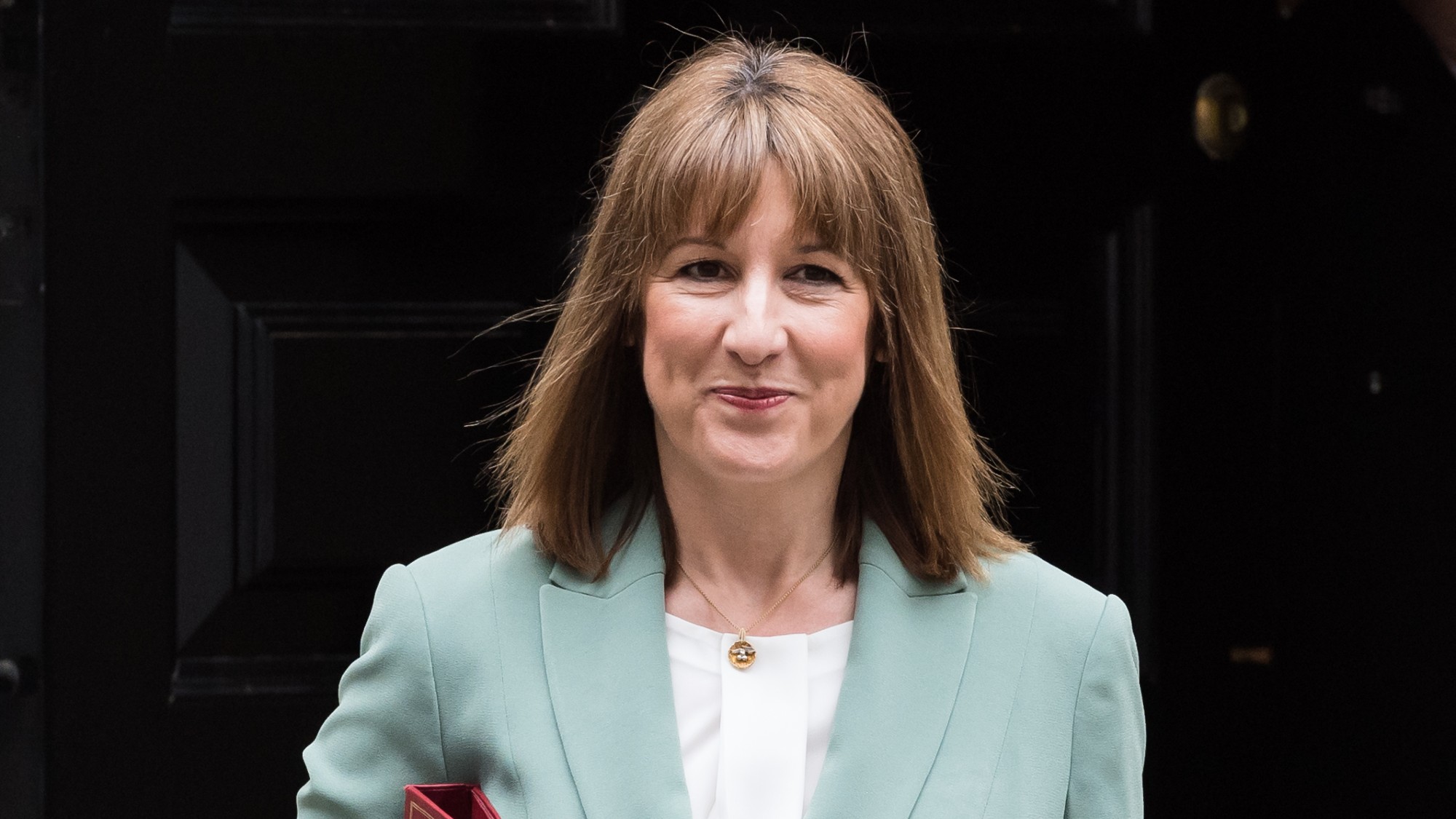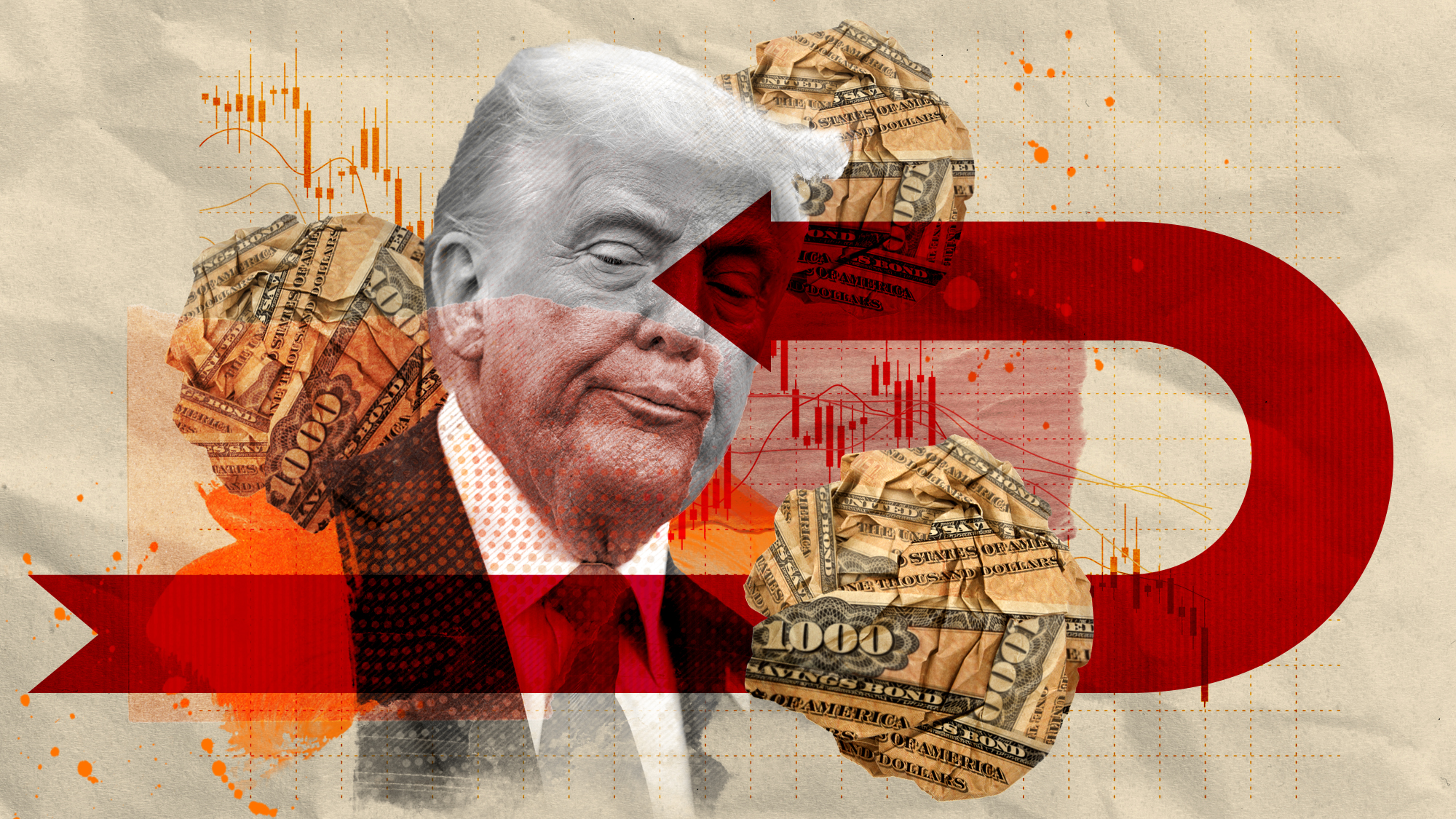Autumn Statement predictions: will Hunt deliver big-ticket tax cuts?
Chancellor urged to use fiscal 'headroom' to slash inheritance tax and stamp duty

A free daily email with the biggest news stories of the day – and the best features from TheWeek.com
You are now subscribed
Your newsletter sign-up was successful
Following a dramatic cabinet reshuffle, attention in Westminster is turning to next week's Autumn Statement as the government scrabbles to win over voters ahead of next year's general election.
The autumn update on the government's spending plans is one of the "key financial events in the political calendar", said the BBC, affecting "the take-home pay and household budgets of millions of people" and "setting out how much will be spent on key public services".
Jeremy Hunt has been "assessing his options" for next Wednesday's statement, said the Daily Mail's Whitehall editor Claire Ellicott, after the Office for Budget Responsibility (OBR) reported that his "headroom" had grown to between £13 billion and £15 billion. The chancellor had previously ruled out personal tax cuts "over fears that they would undermine efforts to bring down inflation", Ellicott added, but may now reconsider amid "political pressure to give the Tories a way to bridge the poll gap with Labour".
The Week
Escape your echo chamber. Get the facts behind the news, plus analysis from multiple perspectives.

Sign up for The Week's Free Newsletters
From our morning news briefing to a weekly Good News Newsletter, get the best of The Week delivered directly to your inbox.
From our morning news briefing to a weekly Good News Newsletter, get the best of The Week delivered directly to your inbox.
Here are some of the big changes that Hunt may announce.
Tax cut for business
Extending "full expensing" – a tax relief allowing businesses to offset their investments against corporate tax – is reportedly a priority for the chancellor.
"Government insiders" cited by the Financial Times said Hunt was likely to extend the regime beyond 2026. According to the paper, the tax break is known inside the Treasury as "the Big Daddy" of business tax cuts, and extending or even making it permanent is viewed as the "biggest ask" from business ahead of next week's statement.
The chancellor "believes the move would help boost long-term economic growth, one of the central aims in the package", wrote The Telegraph's political editor Ben Riley-Smith. Treasury officials have concluded that extending the tax cut would not be inflationary, Riley-Smith said, "meaning it passes one of Hunt’s key tests".
A free daily email with the biggest news stories of the day – and the best features from TheWeek.com
Inheritance tax
The government has faced growing calls to slash inheritance tax (IHT), which has been called "the most hated tax in Britain".
IHT is currently charged at 40% over the tax-free threshold of £325,000, but reforms could include reducing the headline rate; simplifying the system to allow families to pass on £1 million tax-free; or scrapping the tax entirely.
With the Conservatives currently facing electoral oblivion, supporters of lowering or axing IHT say the move could "shore up support in Tory heartlands and provide a boost for the party's fortunes", reported LBC.
Stamp duty
Another levy tipped for changes is stamp duty. Buyers currently pay stamp duty at a rate of 5% of the value of a property over £250,000, rising to 10% beyond £925,000 and as much as 12% for properties valued at more than £1.5 million.
The levy raised £18.4 billion for the Treasury in the 2021-22 financial year.
But The Sunday Times reported that the government is now "looking at raising the thresholds", a move likely to be popular with voters. The Treasury also considered an alternative plan to "offer homeowners a rebate on stamp duty if they made energy efficiency upgrades to their homes within two years", according to the paper, but "insiders said this has been ruled out".
As well as winning public approval, a stamp duty cut would "likely kick-start the housing market, which is slower than usual after the pandemic", said LBC.
Fuel duty
Treasury officials are also "pushing" Hunt to raise fuel duty for the first time in more than a decade, The Telegraph reported last month. Analysts calculated that fuel duty needed to be raised by at least 2p to offset the £5 billion being lost by the Exchequer each year after then chancellor Sunak cut the rate by 5p in March 2022.
The proposed hike would increase fuel duty to 55p a litre for petrol and diesel, but officials "do not believe the move will be seen as a tax rise, as the duty will still be lower than when it was last raised in 2011", the paper said.
An increase is likely to face significant opposition from Tory MPs, however, and risks undermining the prime minister's attempt to woo motorists ahead of the next election.
War on 'woke' civil service
Hunt is also expected to use next week's statement to reveal the results of an audit of equality, diversity and inclusion (EDI) spending in Whitehall, before launching a "fresh clampdown" on the "swathes of costly box-ticking woke jobs in the civil service", said In the Daily Mail's Martin Beckford.
A review last year by the Conservative Way Forward think tank, based on freedom of information responses, found that as many as 255 staff were working exclusively on equality across Whitehall, at a cost to the taxpayer of £11.5 million a year.
"Having already announced a hiring freeze across government departments", said the newspaper, Hunt is "expected to announce further measures to curb the spread of the controversial posts".
-
 What to know before filing your own taxes for the first time
What to know before filing your own taxes for the first timethe explainer Tackle this financial milestone with confidence
-
 The biggest box office flops of the 21st century
The biggest box office flops of the 21st centuryin depth Unnecessary remakes and turgid, expensive CGI-fests highlight this list of these most notorious box-office losers
-
 The 10 most infamous abductions in modern history
The 10 most infamous abductions in modern historyin depth The taking of Savannah Guthrie’s mother, Nancy, is the latest in a long string of high-profile kidnappings
-
 US mints final penny after 232-year run
US mints final penny after 232-year runSpeed Read Production of the one-cent coin has ended
-
 Autumn Budget: will Rachel Reeves raid the rich?
Autumn Budget: will Rachel Reeves raid the rich?Talking Point To fill Britain’s financial black hole, the Chancellor will have to consider everything – except an income tax rise
-
 Pros and cons of a wealth tax
Pros and cons of a wealth taxPros and Cons Raising revenue and tackling inequality vs. the risk of capital flight and reduced competitiveness
-
 Is Rachel Reeves going soft on non-doms?
Is Rachel Reeves going soft on non-doms?Today's Big Question Chancellor is reportedly considering reversing controversial 40% inheritance tax on global assets of non-doms, after allegations of 'exodus' of rich people
-
 Pocket change: The demise of the penny
Pocket change: The demise of the pennyFeature The penny is being phased out as the Treasury plans to halt production by 2026
-
 How the US bond market works – and why it matters
How the US bond market works – and why it mattersThe Explainer Donald Trump was forced to U-turn on tariffs after being 'spooked' by rise in Treasury yields
-
 US Treasuries were a safe haven for investors. What changed?
US Treasuries were a safe haven for investors. What changed?Today's Big Question Doubts about America's fiscal competence after 'Liberation Day'
-
 Foreigners in Spain facing a 100% tax on homes as the country battles a housing crisis
Foreigners in Spain facing a 100% tax on homes as the country battles a housing crisisUnder the Radar The goal is to provide 'more housing, better regulation and greater aid,' said Spain's prime minister